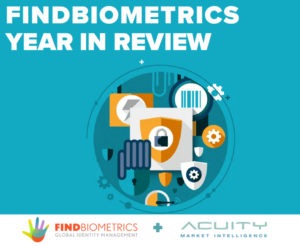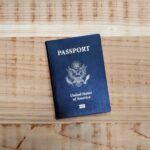Welcome to FindBiometrics’ digest of identity industry news. Here’s what you need to know about the world of digital identity and biometrics today:
Italy’s Data Protection Agency Suspends Use of Facial Recognition Beyond Law Enforcement
Italy’s Data Protection Agency has announced a moratorium on the use of facial recognition technology, as well as smart glasses, with exceptions for cases in which the technology is being used by law enforcement. The regulator says its ban will last until a law explicitly governing the technologies has been enacted, or at least the end of next year. Its ruling has come in response to plans from two municipalities: authorities in the southern city of Lecce had planned a deployment of facial recognition tech, while those in the Tuscna city of Arezzo planned to deploy license plate-scanning smart glasses for police.
UK, Ireland Struggle With Biometric Border Issues
The United Kingdom’s Immigration Minister, Robert Jenrick, has confirmed that non-Irish citizens of the European Union will be required to submit biometric data when traveling from Ireland into Northern Ireland, as part of the Electronic Travel Authorisation project slated to take effect next year. The border screening process will begin with the collection of face biometrics, and will eventually ask travelers to upload fingerprint biometrics online. Irish authorities are concerned about the economic impact of the new border screening program, particularly with respect to the travel sector.
Smugglers seem to be replicating biometric passports in order to help Albanians to illegally enter the United Kingdom, according to an investigation by The Sun. A reporter was able to get in touch with traffickers through WhatsApp, and reports that they were prompted to pay a €3,000 deposit in the Albanian capital Tirana to get a passport, ID, and driver’s license, with the traffickers writing that the process will require them to “take from you biometric features and fingerprints”.
Indonesian Officials Detail Biometric G20 Security Measures
Indonesian security officials have offered further details about the use of facial recognition technology to secure this week’s G20 Summit in Bali. The system has reportedly been configured to search individuals against those listed in the Home Affairs Ministry’s Directorate General of Population and Civil Registration and the National Police’s Criminal Investigation Department’s Indonesian Automatic Fingerprint Identification System. The biometric surveillance system will operate through CCTV cameras throughout the province.
Kuwait Airport to Deploy Biometric Screening Tech
Officials at Kuwait’s Ministry of Interior are preparing to deploy biometric screening devices at the Kuwait International Airport in early 2023, reports Arab Times. Government administrators appear to have already selected one or more vendors for the biometric devices, which will be used to scan faces, irises, and hands, with anonymous sources attesting to the devices’ “high efficiency rates”.
Philippines Leaders Plan Prison, Insurance App Deployments
The head of the Philippines’ Bureau of Corrections has announced plans to implement a facial recognition system in the New Bilibid Prison, which houses about 30,000 inmates. The security system will be used to track both inmates and guards, and is being implemented amid scrutiny of the prison and its reportedly rampant smuggling activities.
The head of the Philippines’ Government Service Insurance System (GSIS), meanwhile, has announced plans to implement facial recognition in the GSIS Touch mobile app. GSIS President and General Manager Wick Veloso said his agency is “working closely with the Department of Information and Communications Technology” to expand the app’s functionality, in accordance with a call from Philippines President ‘Bongbong’ Marcos Jr. for digital modernization.
Deals and Partnerships
Lexington, Kentucky-based Members Heritage Credit Union has signed on to use Access Softek’s Access Digital solution, which supports digital banking with strong security features including biometric authentication and a real-time fraud detection system based on analysis of user behavior. The news points to strong momentum for Access Softek, which announced the addition of four credit unions to its roster of customers last week.
Ottawa-based FundMore has partnered with VeriFast, integrating that latter’s identity verification technology into its mortgage underwriting software platform. The partnership signals VeriFast’s rising profile as a digital identity verification specialist serving Canada’s real estate sector. In September, the Canadian real estate company Rent Panda launched a tenant screening system that included facial recognition capabilities, care of VeriFast.
Financial services IT developer TrueNorth has entered into a partnership with Veriff that will see it offer the latter’s identity verification solutions to its clients. “Our new partnership with Veriff allows us to optimize identity fraud prevention without compromise,” said TrueNoth Director of Partnerships Patrick Rikli. Veriff announced that the hospitality messaging platform Akia would integrate its selfie onboarding solution earlier this month.
South Africa-based iPulse Systems, a biometric identity and access management specialist, has launched a new voice recognition solution hosted on the Microsoft Azure platform. Dubbed ‘VoiceIQ.cloud’, the solution is built on ID R&D’s IDVoice product, and supports voice matching and liveness detection. In a statement, iPulse Systems CEO Gary Chalmers called it “an industry-first solution that should prove completely disruptive in this sector”.
Apple’s Mobile ID Arrives in Third US State
Colorado has officially become the third state to roll out support for Apple’s Mobile Driver’s License. In announcing the state’s support for the virtual driver’s licenses, officials also revealed that Apple’s mobile IDs can be used as official identity documents at the Denver International Airport. Despite the TSA support, Colorado authorities are still insisting that Apple’s mobile ID is not a replacement for their physical driver’s license or ID cards, but rather a complement to them. Read the full story on Mobile ID World.
Facial Recognition Sheds Light On Holocaust Survivor’s Family
A facial recognition tool built by Google software engineer Daniel Patt has helped to provide new details about a family disrupted by the Holocaust to the United States Holocaust Memorial Museum. The tool, “Numbers to Names”, uses biometric technology to match an individual to archival photos, and was able to link Blanche Fixler, whose aunt Rosa helped her to escape the Nazis, to a forgotten family photo. Presented with the image, Fixler was able to identify Rosa and young boys also featured in the image.
–
November 14, 2022 – by Alex Perala









Follow Us